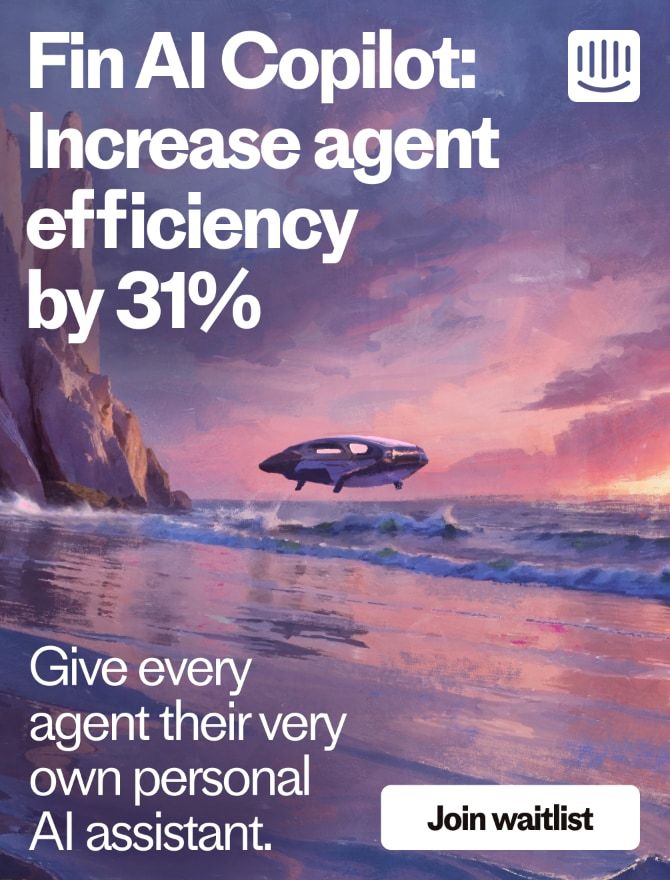
Reflection: a key ingredient to great product teams
Main illustration: Jon Marchione
Our minds are always busy. We’re reading emails, collaborating in meetings, writing code, sketching ideas, talking to our customers or planning our work.
To get these things done quickly we rely on habits – we repeat behavior that has worked in the past. We run on autopilot.
Let’s pause and take a breath.
We learn by doing, but when you don’t dedicate time and space for reflecting on how you’re “doing” you’re losing out on an opportunity to understand what’s working, what’s not and transform the way you work to become more effective.
At Intercom we do this on multiple levels and I believe that reflection and self-awareness are key ingredients that have allowed us to scale so fast while maintaining productivity and avoiding chaos.

Individual
Everyone has a weekly 1:1 with their manager where they discuss the highs and lows of the week and what can be learned from them. We discuss difficult situations like conflicts with colleagues, meetings that didn’t go too smoothly or unexpected changes that came out of nowhere. We also discuss success.
To reflect on your week try answering these questions:
- What situation do you believe could’ve been dealt with more efficiently?
- Describe what happened and how we behaved. How did that make you feel? How did that make others feel? What other factors influenced this situation?
- What behavior do you think would have changed the outcome? Is there anything you could say or do now to change the outcome? What action can you take to change similar situations in the future? What behaviours might you try changing?
It’s easy to slip into talking about day to day project work during 1:1s, but that’s not what they’re for. Be diligent about focusing on personal development.
You could do this by yourself, but having another person to discuss it with and receive relevant advice from can be incredibly powerful to continuously iterate on how you work.
We also do bi-annual performance reviews where we gather feedback from peers, collate all of the feedback together and see how each individual is progressing towards their long term personal development and career goals.
Team
Each Friday, before product teams do their planning sessions, they spend 30 minutes reflecting on the week. Everyone raises what they think went well, what could’ve gone better and suggests what they should start, stop or continue doing.
We talk about things like how we run our daily stand-ups, how designers and engineers collaborate, bad decisions that were made and many others things.
By doing this each week you can quickly iterate on how you work as a team by experimenting with new techniques and ironing out the kinks.
Project
When we wrap up a big project we hold a retrospective to discuss what worked and what didn’t. Projects often involve multiple teams and the cross sections between them tend to be the messiest. Bringing voices from different disciplines together and hearing each other’s point of view creates empathy and trust for each other.
To jog everyone’s memory it’s useful to first set a timeline of key events. Then ask everyone to answer these questions on their own:
- What worked well?
- What could’ve gone better?
- What should we start, stop or continue doing?
It’s useful to give everyone some time to think about this before you gather as a team. Then collate everything together, group by similar themes and discuss as a team. Decide on action items of what you should do differently in the future and set owners for who should drive these changes. Share your findings with other teams too so they can learn as well.
As a result of doing these project-based retros we’ve introduced changes like doing end-to-end walkthroughs for all product work that we build, setting stronger deadlines for ourselves that force us to make smart compromises and introduced a whole new role of Program Management.
Company
Twice per year we do a company-wide survey to understand employee engagement and what areas we need to improve (we use a product called Culture Amp to do this). We measure employee satisfaction on themes such as management, diversity and inclusion, company confidence, learning and development, etc.
We take it very seriously and strive for 100% percent participation from the whole company. For example, in a previous survey we learned that some teams had been so focused on building product that we hadn’t paid enough attention to people development.
Surveys like these are pointless unless you’re going to act on them. Our leadership teams assess the feedback and come up with very specific action plans to tackle the most important issues and keep teams regularly updated on progress and results.
As a result of this survey, teams that didn’t pay enough attention to people development focused heavily on improving that by making sure that everyone received consistent performance reviews, a clear career development plan, a clear job spec, training and development opportunities and made the compensation review process more transparent. A year later we ran the survey again and saw that we’d made a significant impact in this area.
It’s tempting to stop reflecting when pressure is high and time is low. Yet that’s the most impactful time to do it. Reflecting on how you work will increase your performance by allowing you to focus on the right things and improve how you collaborate with your team.







